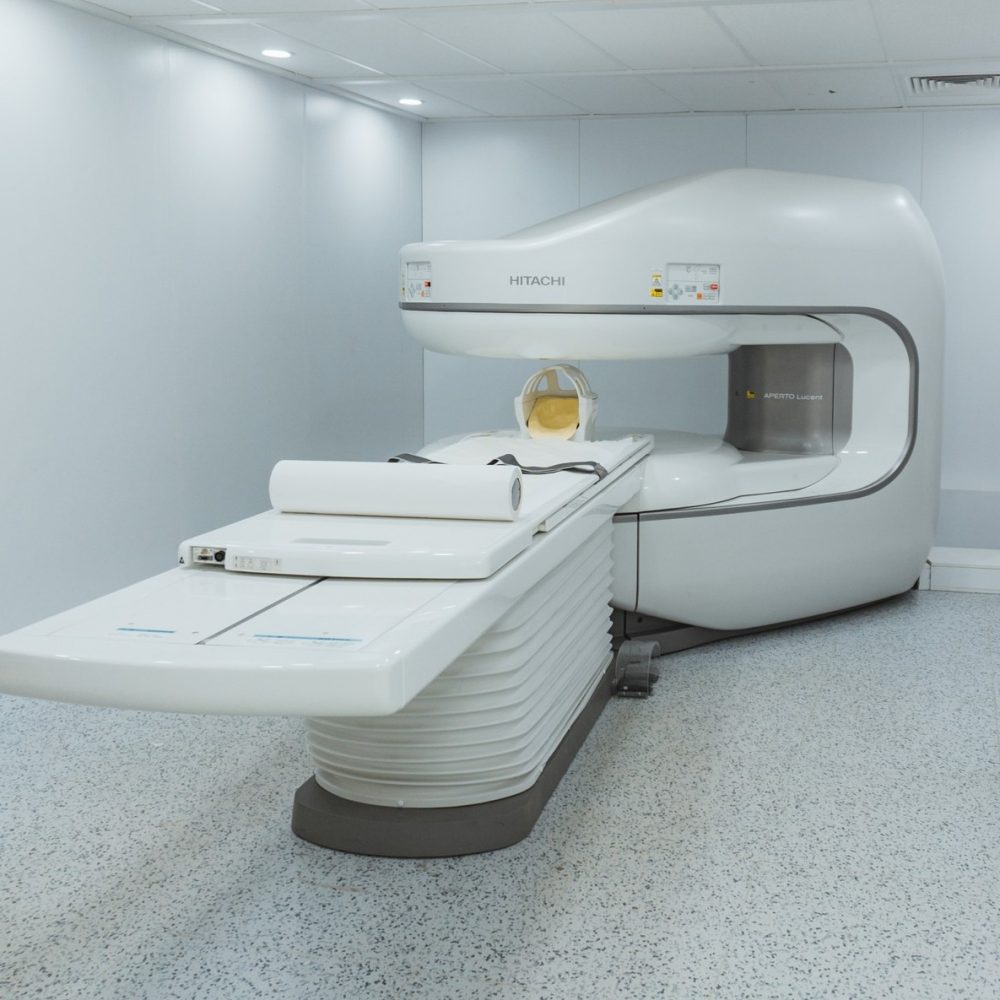
MRI
What is MRI?
Magnetic resonance imaging or MRI is a test that uses a magnetic field, pulses of radio wave energy and a computer system to provide pictures of organs and structures inside the body. MRI offers information that may not be obtained from an x-ray, ultrasound or CT scan. It can detect changes in the normal structure and characteristics of organs or other tissues. These changes may indicate diseases caused by trauma, infection, inflammation or tumors.
MRI uses no ionizing radiation (unlike X-rays and CT scanners which themselves nowadays have significantly reduced radiation dose than previous versions). MRI also has superior soft-tissue resolution than most imaging modalities and may provide information that may not be provided by X-rays, CT scanners and ultrasound.
The other superior advantage of MRI over most imaging modalities is its multi-planar nature (images and shows a particular body part in multi-directional/multi-dimensional aspect.
What to expect?
Your healthcare provider may give you instructions on how to prepare for your MRI. On the day of the exam your healthcare provider may ask you to pay attention to the following:
- Arrival: You should plan to arrive early. Arriving early helps the testing stay on schedule.
- Medications: Ask your healthcare provider if you should take your regular medicines before the MRI.
Upon arriving at Jahmale, you will be greeted by our friendly and knowledgeable staff that will register and help you get ready for your exam. Our dedicated MRI Technologist will walk you through the exam, answer any questions you may have and ask you to sign a consent form.
You will be required to change into a hospital gown and remove all objects that are not permitted in the MRI room. This includes all removable metallic, magnetic, electronic and mechanical implants, devices or objects. Your items will be securely locked for the duration of your exam. You should inform your doctor and the technologist if you have any non-removable implants, devices or objects. A buzzer will be used to scan down if there is any metallic object that is forgotten. At Jahmale, we encourage you to be an ambassador of your own health, feel free to ask questions or seek clarity whenever you require it. Your exam may take between 45 minutes to an hour.
The technologist will communicate with you on intervals during your exam. You may hear a series of repetitive low pitch noises. The noise occurs when the images are being taken so it is particularly important to not panic and remain still as motion may cause the images to blur and may extend the exam time. An ear plug will be given to you to insert into your ear to minimize the extended noise from the machine.
Depending on your physician’s or radiologist’s order, a contrast injection through an IV may be necessary to help better visualize the area being imaged. While it may not be necessary, the use of contrast depends greatly upon your medical history.
Please follow the instructions given to you by your physician and when scheduling your exam.
MRIs at Jahmale
When not properly accommodated during an MRI, claustrophobic patients may experience panic attacks, which can bring on increased heart rate, difficulty breathing, chills, sweating, and other distressing symptoms. To decrease the likelihood of this, Jahmale invested in an open MRI design instead of the traditional tomb-like MRI machine; increasing comfort, safety and overall patient experience.
When will I receive my results?
If you have had a MRI for the same body part done at a different facility, please bring or have the images sent to Jahmale Medical Solutions, ideally prior to your appointment. This allows the radiologist a comparison of former studies to current.
The Radiologist (a doctor with special training) will review your exam in a detailed manner and prepare a report that explains them. You will usually get the radiologist report within 24 to 48 hours. However, film or a compact disc (CD) of your images may be given to you after the exam.
Once a radiologist and your healthcare provider have reviewed the results, you will either have another appointment or receive a call. Your healthcare provider will discuss the results with you.
In an emergency setting, healthcare providers often receive results less than 24-hours.






